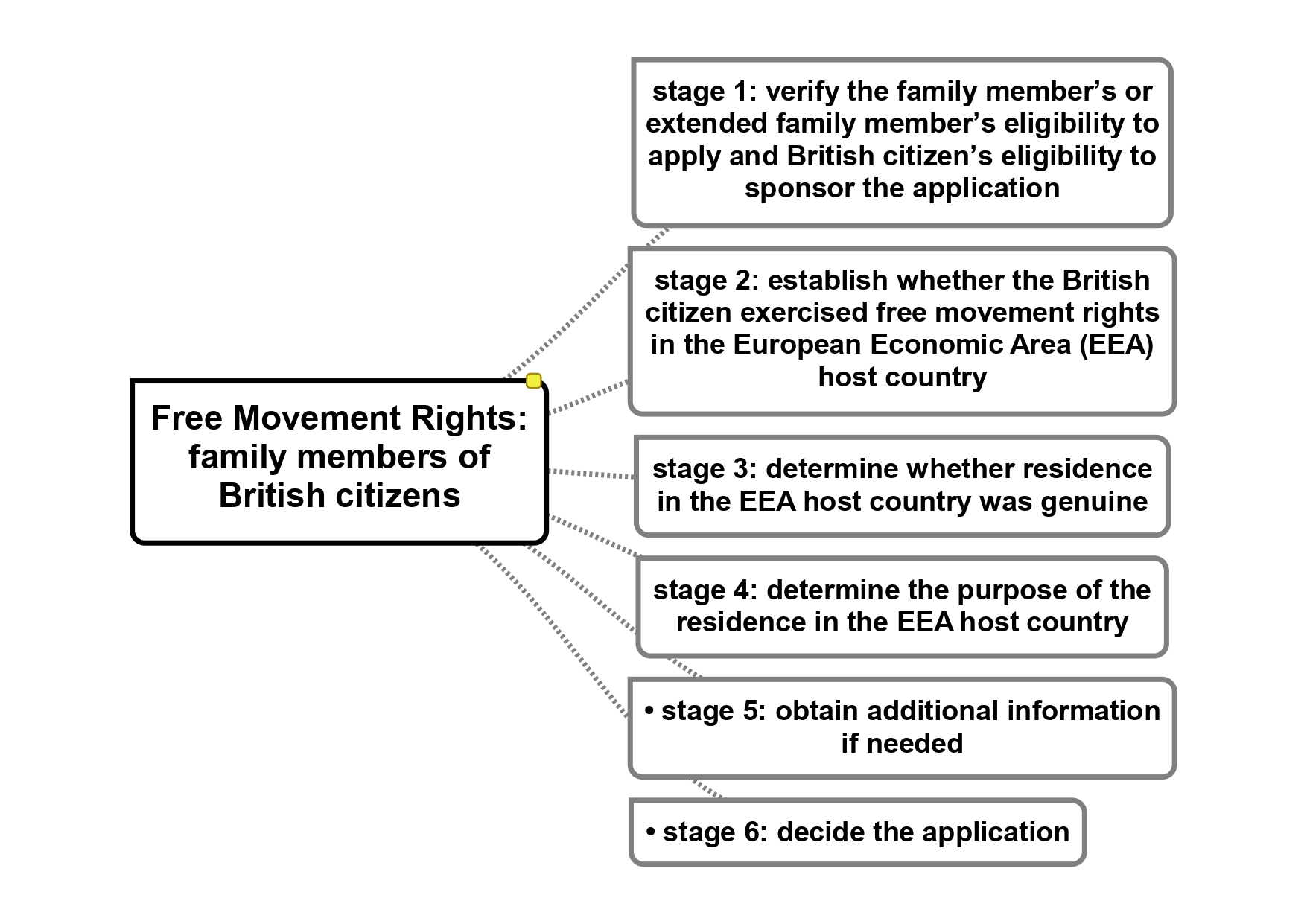Can British Citizens Still Benefit from EU Law?
The Surinder Singh Immigration Route
John is a British citizen. Gwen, his wife, is from a visa national country. They have a daughter Kathryn, who is a British citizen. John passed his British citizenship on to his daughter. Gwen is currently in the UK. Two years ago she entered the UK as a spouse of a British citizen. The duration of her visa was 33 months. Now it is time to renew her visa. John and Gwen will have difficulty meeting the financial requirement this time. John wonders if his wife can make an application under provisions of EU law.
First of all, why would John want to do this?
Can British Citizens Still Benefit from EU Law?
UK Immigration Law
You see, if Gwen seeks to renew her visa as a spouse of a British citizen, under the UK immigration law (domestic law) she would need to meet a number of requirements. There are three elements in any application:
- The Suitability Requirements
- The Eligibility Requirements:
- The relationship requirement
- The financial requirement
- The immigration requirement (if this is further leave to remain (extension) application, made in the UK)
- The English language requirement
- The Procedure
The Financial Requirement
A number of couples, especially in current circumstances, may have difficulty meeting the financial element of the eligibility requirement. What is this financial requirement? If John is not in receipt of disability-related benefits, this means, that he and Gwen will need to show an annual income of at least £18,600 to meet this financial requirement. The couple can compensate for this by the savings if they have them. However, the tricky bit with savings is in the fact that the Home Office only ‘sees’ them when they are above £16,000.
They use a special formula for calculation:
£16,000 + (shortfall from salary x 2.5years)
So, if John’s and Gwen’s income is £12,300 gross per year, they will need to have savings of at least £31,750 to meet the financial requirement:
£16,000 + ((£18.600- £12,300) x 2.5 years)
The EU Law
A number of couples choose to enter/remain in the UK under the provisions of EU law. Why? This is because they do not have to meet the above requirements. The EU spouse does not have to show that he meets the Minimum Income Requirement of £18,600 per year to be reunited with his wife. If a couple makes an application under the provisions of EU law, all he has to show is that he is in ‘genuine and effective’ employment. It is rather obvious that most couples would prefer to make their applications without this Minimum Income Requirement hassle.
Can British Citizens Still Benefit from EU Law?
Does the EU Law Still Apply Though?
Yes, it does. Why if the UK left the EU on 31 January 2020? As part of the Withdrawal Agreement, the UK and the EU agreed an implementation period in order to provide continuity and certainty. During this time, EU law will generally continue to apply in the UK as it did before the UK left the EU. This period will last until 31 December 2020, at 11 pm.
Before that, technically speaking, all EU nationals have a choice and can either continue applying under provisions of the Immigration (European Economic Area) Regulations 2016 or Appendix EU. Appendix EU is the EU derived domestic legislation allowing the EU nationals to acquire a right to remain in the UK after 31 December 2020.
The Surinder Singh Immigration Route
In very simple terms, this is a route allowing British citizens to be reunited with their family members in the UK under the provisions of EU law not under the UK domestic law. As we established above, in the majority of cases British citizen may want to do this to avoid the necessity to meet the Minimum Income Requirement.
Who can benefit from it? The Home Office says – those, who can meet the 6-stage test:

Stage 1
To sponsor a family member’s or extended family member’s right to reside in the UK, the British citizen needs to be a qualified person. In other words, he will need to be a worker, a self-employed or self-sufficient person, a jobseeker (no more than 91 days) or a student. If the British citizen is seeking to satisfy the conditions for being a qualified person as a self-sufficient person or student in the UK, the family member or extended family member must hold comprehensive sickness insurance (CSI) to cover themselves and any other family members (for example children). However, British citizens don’t need to have this insurance. There is no minimum income requirement either. All they have to show is that their employment is genuine and effective.
Stage 2
Only when John is happy that he and Gwen meet stage 1, he can move to the second stage.
At this stage, John (the British citizen) will need to provide proof to confirm that he either:
- lived and exercised free movement rights as a worker, self-employed person, self-sufficient person or student (‘a qualified person’) in the EEA host country immediately before returning to the UK
- acquired the right of permanent residence in the EEA host country following 5 years’ residence as a qualified person before returning to the UK
Stage 3

John and Gwen will need to prove that their residence in the UK was a genuine one, not simply to benefit from the EU legislation. The Home Office suggested that they will consider the following factors:
- the length of the applicant and British citizen’s joint residence in the EEA host country
- the nature and quality of the applicant and British citizen’s accommodation in the EEA host country, and whether it is or was the British citizen’s principal residence
- the applicant and the British citizen’s integration in the EEA host country have created or strengthened their family life.
- if the family includes any children, were they born or did they live in the EEA host country and if so, did they attend school there and were they otherwise involved in the local community?
- are there any other family members resident in the EEA host country and were they working or studying there or otherwise involved in the local community?
- how did the family member or extended family member spend their time in the EEA host country – is there evidence they worked, volunteered, studied or contributed to the community in any other ways?
- have they immersed themselves into the life and culture of the EEA host country?
There are a number of indicators to confirm this. For example, it will be beneficial if the family bought a property there. Also, if they can speak fluently the language of the country where they lived. Were they involved with the local community? Do they own a vehicle that is taxed and insured there? Also, it is a strong factor in their favour, if they have registered with the local health service, a general practitioner (GP), a dentist?
Stage 4
This is a highly arguable stage. This is because in most cases, EU law does not permit to investigate the ‘parties’ intentions’. However, it is useful to know what the Home Office thinks about it because this way you’ll be able to avoid ‘sharp’ corners by ‘ironing’ the application and providing very clear evidence confirming bona fide intentions.

According to the Home Office guidance:
‘Ordinarily, non-EEA family members or extended family members who wish to reside in the UK with British citizen sponsors must meet the requirements of the Immigration Rules. If the motivation behind the joint residence in the EEA host country was solely for the purpose of bringing the family member or extended family member to the UK under EU law instead of those rules, such that the residence in the EEA host country was not genuine, the applicant will not be eligible to enjoy a right to reside in the UK as the family member or extended family member of a British citizen under the Immigration (European Economic Area) Regulations 2016 (the 2016 regulations) and the residence card application will be refused.’
The success at stage 4 is very closely connected with all previous stages. It will depend on John’s ability to meet the previous 3 stages.
Stage 5
It is highly likely that the decision-makers will be making further enquiries. After all, there is a separate stage dedicated to this. So, John and Gwen should be prepared and not alarmed by further enquiries. This is a standard procedure, ingrained into the 6-stage test.
Stage 6
Stage 6 is funny. It reminds the decision-makers to reach a logical conclusion on the application and not to forget about it amidst all other important things.
Can British Citizens Still Benefit from EU Law?
The Verdict
What’s John’s and Gwen’s verdict? Can they benefit from the provisions of EU law?
It’s difficult to say because we need to dig into their situation much deeper to assess John’s eligibility (is he a qualified person now?), status in another Member State (was he a worker there?) and credibility (were couple’s residence and intentions genuine ones?) factors. It’s like a game of chess. The outcome will depend on the moves you make.

If the decision-maker can tick all 6 boxes when considering John’s and Gwen’s application, they can potentially apply for a residence card for Gwen. However, they should not forget that immediately after getting a residence card for Gwen she’d need to apply for further leave to remain under Appendix EU. Appendix EU is domestic law allowing EU nationals and their family member to continue residing in the UK after 31 December 2020 (11 pm). If granted, she’ll have leave approved for 5 years. She will be eligible for Indefinite Leave to Remain (under Appendix EU) only after 5 years of residence in her capacity of a family member of an EU national. So, the decision-maker will disregard the previous 2.5 years spent as a spouse of a British citizen under Appendix FM. This is because she ‘switched’ the routes.
Further Help
If you consider making your visa application yourself, you’ll greatly benefit by attending UKVisaSuccess.com online courses guiding you through the process. You can get more information and instant access HERE.
